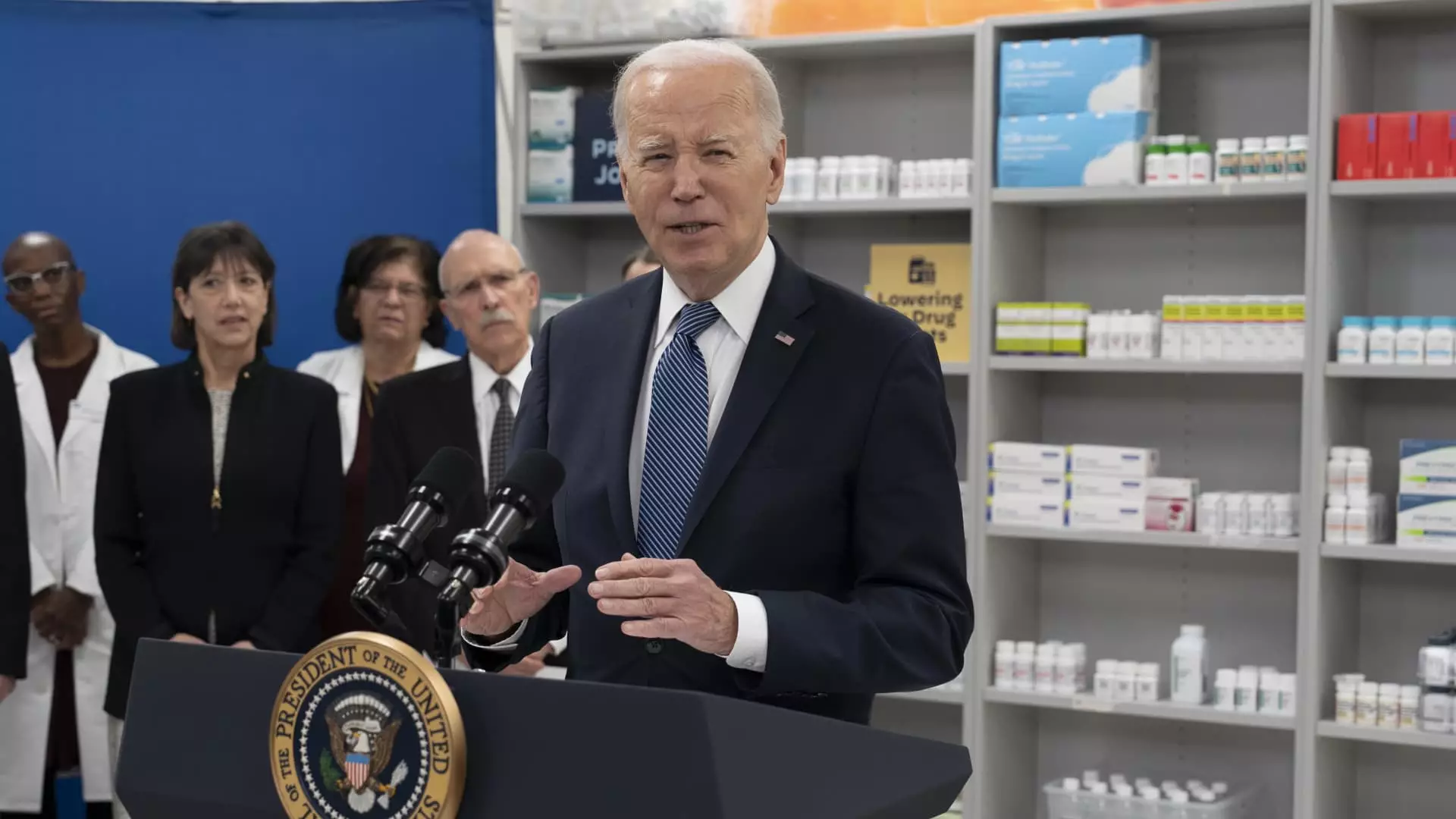The Biden administration recently announced that it will be imposing inflation penalties on 64 prescription drugs for the third quarter of this year. This move aims to lower costs for certain older Americans who are enrolled in Medicare. President Joe Biden has been vocal about his commitment to lowering drug prices in the U.S., and this initiative is a part of his health-care agenda and reelection platform for 2024.
One of the key aspects of Biden’s strategy is the Inflation Reduction Act, which requires drugmakers to pay rebates to Medicare if they increase the price of a medication faster than the rate of inflation. This is separate from another provision that allows Medicare to negotiate lower prices directly with manufacturers. On average, Americans pay significantly more for prescription drugs compared to patients in other developed nations, which makes initiatives like this crucial for reducing healthcare costs.
Under Wednesday’s announcement, some Medicare Part B patients will benefit from a lower coinsurance rate for the 64 drugs covered in this initiative. These drugs are used to treat conditions such as cancer, infections, and osteoporosis. Patients using these medications during the quarter may save up to $4,593 per day. It is estimated that more than 750,000 Medicare patients rely on these drugs each year.
The list of drugs covered in this announcement includes treatments like Bristol Myers Squibb’s Abecma for multiple myeloma, Pfizer’s Adectris for certain lymphomas, and Astellas Pharma and Pfizer’s Padcev for advanced bladder cancer. Notably, Padcev’s price has been consistently increasing faster than inflation, highlighting the importance of initiatives like the Inflation Reduction Act in protecting seniors from price hikes.
Neera Tanden, a White House domestic policy advisor, emphasized the significance of the Inflation Reduction Act in shielding seniors from pharmaceutical companies’ price hikes. The Centers for Medicare & Medicaid Services are set to send invoices to drugmakers in 2025 for the rebates owed to the program, ensuring accountability and transparency in the system. This initiative builds on the list of 48 prescription drugs that were subject to inflation penalties during the first quarter of 2024, demonstrating a sustained effort to address rising drug costs.
Overall, the Biden administration’s decision to impose inflation penalties on prescription drugs is a step towards creating a more affordable healthcare system for older Americans. By holding drugmakers accountable and ensuring that prices are aligned with inflation, initiatives like the Inflation Reduction Act play a crucial role in making healthcare more accessible and equitable for all.

